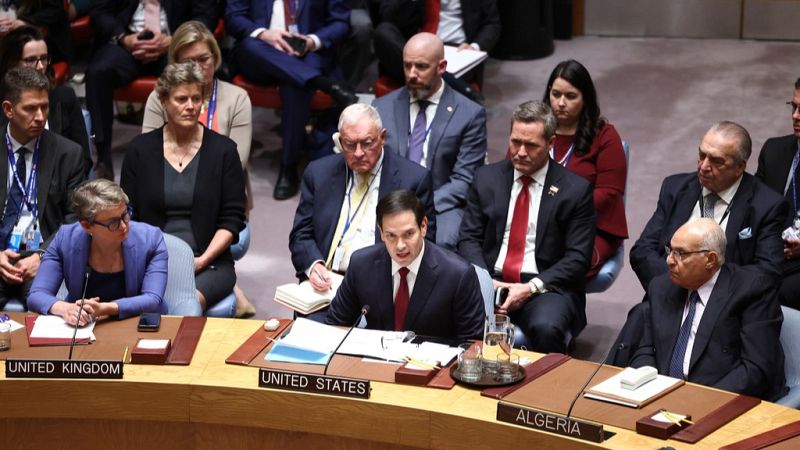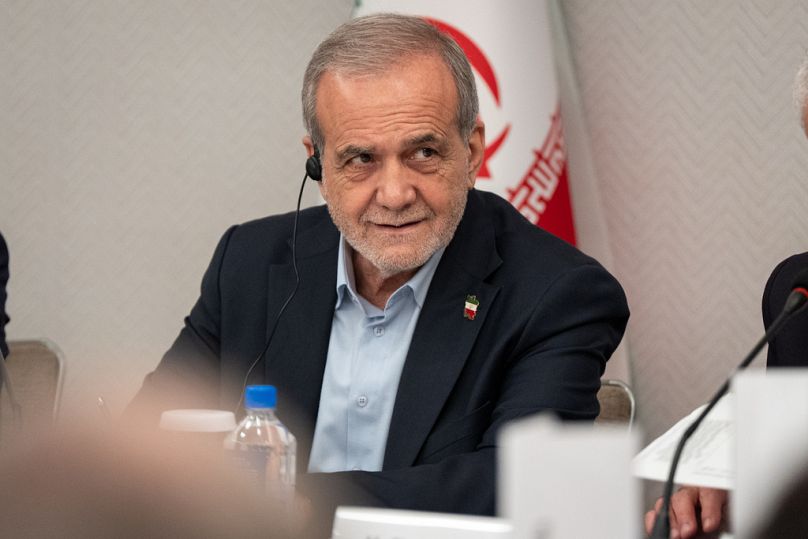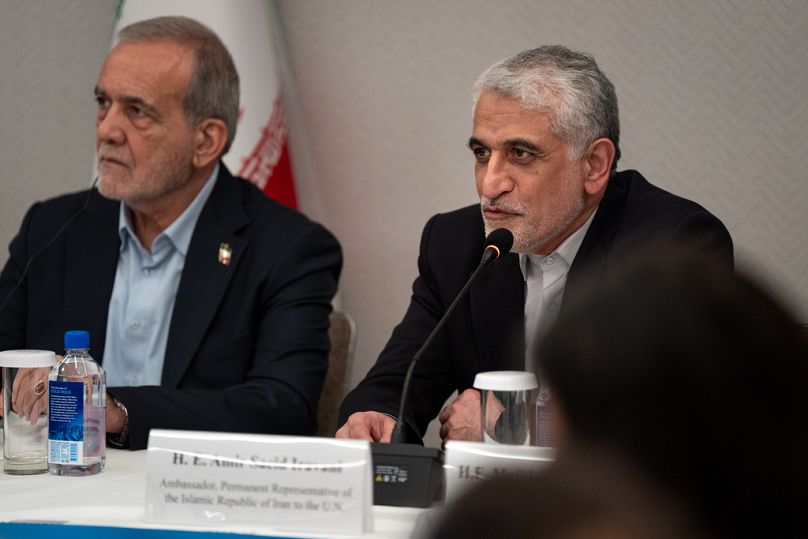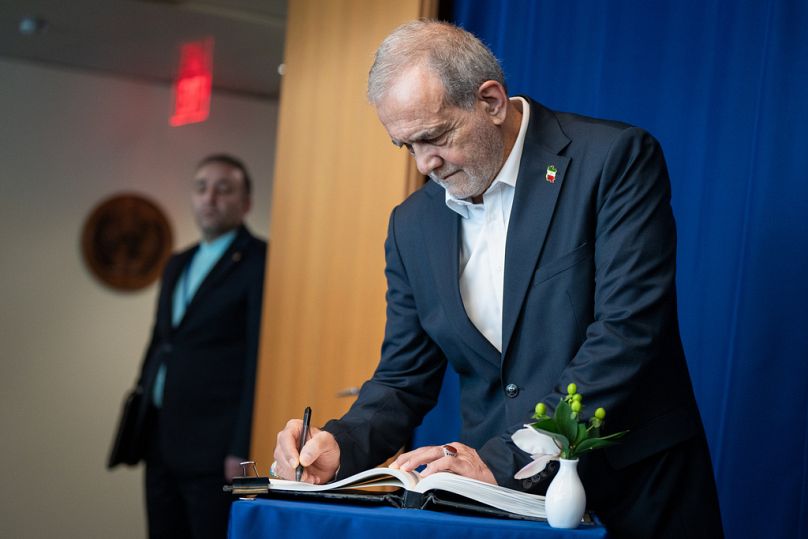UN Security Council rejects Russian-Chinese resolution to delay 'snapback' sanctions on Iran

The UN Security Council rejected a last-ditch Chinese and Russian effort to delay reimposing sanctions on Iran over its nuclear programme. Iranian President Masoud Pezeshkian called the decision “unfair, unjust and illegal” immediately after its announcement.
The resolution, tabled by Moscow and Beijing, who are Iran’s closest allies among the 15-member council failed to garner support from the nine countries required to bring the series of UN planned sanctions – set to take place on Saturday – to a halt.
The vote ended with four votes in favour of the resolution, nine votes against, with two abstentions.
“We had hoped that European colleagues and the US would think twice, and they would opt for the path of diplomacy and dialogue instead of their clumsy blackmail, which merely results in escalation of the situation in the region,” said Dmitry Polyanskiy, Deputy Russian Ambassador to the UN.
Pezeshkian, speaking to journalists and Iran experts on the sidelines of the UN General Assembly shortly after the vote, said that despite previous threats, Iran won't withdraw from the Nuclear Non-proliferation Treaty like North Korea, which abandoned the treaty in 2003 and then built atomic weapons.
Barring a last-minute deal, the sanctions — triggered by the UK, France and Germany — will once again freeze Iranian assets abroad, halt arms deals with Tehran and penalise any development of Iran’s ballistic missile programme.
The sanctions are designed to further squeeze the country’s reeling economy and aim to pressure Iran towards the negotiating table. The move is expected to heighten already magnified tensions between Iran and the West.
Four countries — China, Russia, Pakistan and Algeria — once again supported giving Iran more time to negotiate with the European countries, the so-called E3, and Washington, which unilaterally withdrew from the international accord in 2018 during US President Donald Trump's first administration.
“The US has betrayed diplomacy, but it is the E3 which have buried it,” said Iran’s Foreign Minister Abbas Araghchi after the vote. “This sordid mess did not come about overnight. Both the E3 and the US have consistently misrepresented Iran’s peaceful nuclear programme.”
The European leaders triggered the so-called “snapback” mechanism last month after accusing Tehran of failing to comply with the conditions of the accord and when weeks of high-level negotiations failed to reach a diplomatic resolution.
Since the 30-day clock began, Araghchi, has been meeting with his French, British and German counterparts to strike a last-minute deal, leading up to this week's UN General Assembly High-level week.
But those talks appeared futile, with one European diplomat telling the Associated Press on Wednesday that they “did not produce any new developments, any new results.”
Pezeshkian painted a different image of how the meetings went, saying that it was the Europeans and Americans who refused to make a deal during the High-level week.
“Every time we spoke with the Europeans, we’ve reached conclusions and agreements, but then at the end of the day the American side did not accept,” he said.
As for direct US-Iran talks, one night this week “our foreign minister and European foreign ministers were supposed to sit together and reach an agreement, but the Americans never showed up,” he said. “What are we supposed to do?”
Of all the nations in the world that don't have nuclear weapons programme, Iran is the only nation in the world that enriches uranium up to 60% — a short, technical step from weapons-grade levels.
Earlier this month, the UN nuclear watchdog signed an agreement with Tehran – mediated by Egypt – to pave the way for resuming cooperation, including on ways of relaunching inspections of Iran’s nuclear facilities.
However, Iran has threatened to terminate that agreement and cut all cooperation with the IAEA should UN sanctions be reimposed.
A diplomat close to the IAEA confirmed on Friday that inspectors are currently in Iran where they are inspecting a second undamaged site, and will not leave the country ahead of the expected reimposition of sanctions this weekend.
Today




